Intercultural Crosstalk
Researchers From Abroad① -Please Tell Us About Your Research Life in Japan-
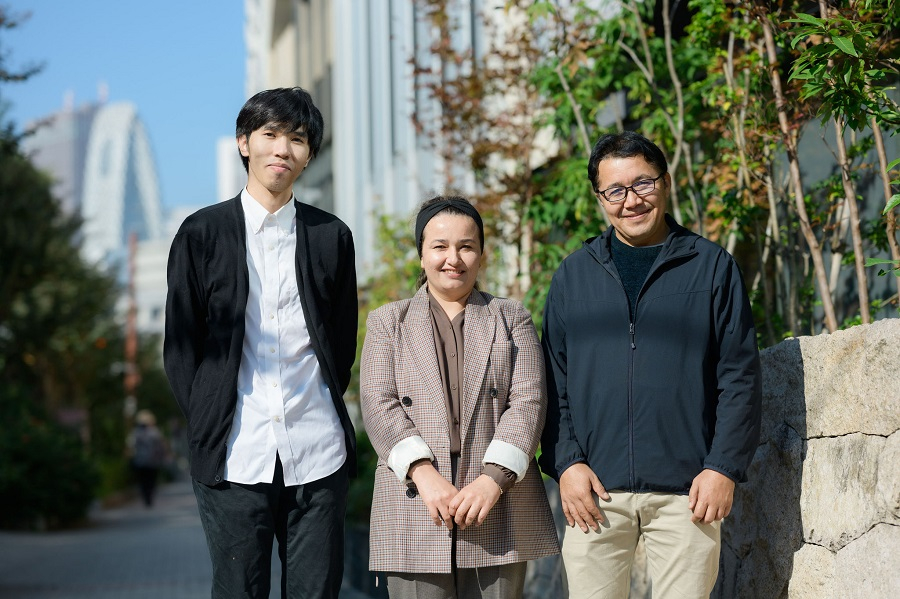
Profiles
Ali (from Afghanistan)
- Years of residence in Japan
- 10 months
- Native language
- Persian
- Favorite Japanese words
- Ohayō gozaimasu(good morning)
- Favorite places in Tokyo
- Shibuya
- Favorite food
- omelets and fried fish
- Hobbies
- Reading, photography, walking in nature
- Research topic
- "Application of plant growth-promoting bacteria on field crops"
Nabieva (from Tajikistan)
- Years of residence in Japan
- 7 years
- Native language
- Tajik
- Favorite Japanese words
- Dōmo (abbreviation for "thank you", or meaning "very", or "hello")
- Favorite places in Tokyo
- Fuchū City
- Favorite food
- Mantu (Tajik cuisine)
- Hobbies
- Listening to music
- Research topic
- "A Comparative Study of Tajik and Japanese Compounds: Focusing on Compound Nouns and Compound Verbs"
Haolin (from China)
- Years of residence in Japan
- 2 years
- Native language
- Chinese (Cantonese)
- Favorite Japanese words
- Kidukai (consideration for others)
- Favorite places in Tokyo
- Odaiba
- Favorite food
- Chicken
- Hobbies
- Watching soccer, playing games, being outdoors
- Research topic
- "The impact of consultative politics on the policy-making process in Hong Kong in the 1980s"
Round 1: Please Tell Us About Your Research Life in Japan
We will be bringing you a 3 part series of round-table discussions with researchers from abroad.
There are people in Japan researching in a variety of fields. Many foreigners also come to Japan to research. What kind of research are they doing? And what kind of life are they living? We asked them about the reasons for their research and why they chose Japan as their place of research.
What Kind Of Research Are You Doing?
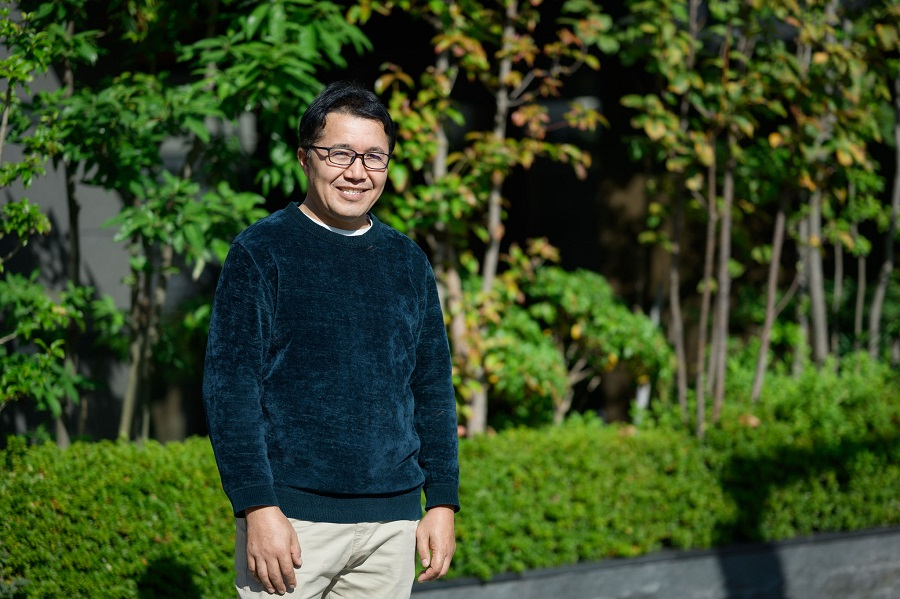
My research is on bacteria that promote plant growth. I was particularly interested in plant nutrition in agriculture. The world's population is increasing, but the amount of land available for agriculture is limited. People need to be able to get food more efficiently, so I'm doing research to increase the nutritional value of food.
I think the same is true for Afghanistan and the rest of the world. Food is being imported to India and Pakistan, as well as to the US and Japan. The world is like one big village, so I have a worldwide interest.
My research theme is "A Comparative Study of Tajik and Japanese Compounds: Focusing on Compound Nouns and Compound Verbs". I am researching this because I think it will be useful for Tajiks studying Japanese in the future. The reason I decided to do this research is because it has not been done much. Tajik and Japanese are completely different languages. Although there are compound words in Tajik, the structure is completely different. In addition, in both languages, there are "lexical compound verbs" and "grammatical compound verbs". With lexical compound verbs, the verb does not lose its basic meaning. However, with grammatical compound verbs, the verb loses its basic meaning and expresses another meaning, which is what I find most interesting. I have written about 90% of my thesis, and I plan to submit it around March 2025.
When I first started studying Japanese, I really couldn't understand the concept of "-shite oku"(to do something in advance, added to a verb). As I studied, my way of thinking became more Japanese, and I was able to understand it.
In Chinese, there is no equivalent of "-shite oku". In Tajik, there is a similar expression, and there is also a form like "kaite oku"(write something in advance).
I am researching the history of Hong Kong. In particular, there are many interesting aspects of Hong Kong in the 1970s, with its political reforms. What similarities does it have with Hong Kong today? I think that learning about history is useful for understanding Hong Kong today.
The initial motivation was to research the image of China held by the rest of the world. There are Chinatowns all over the world, but the atmosphere there is a little more like old Hong Kong than China. The image that people around the world have of China is the image of old Hong Kong. As I researched this image of "China (Hong Kong)" held by people, I found it interesting to learn about Hong Kong's history, so I shifted my research focus to Hong Kong's history.
Why Did You Decide To Do Research In Japan?
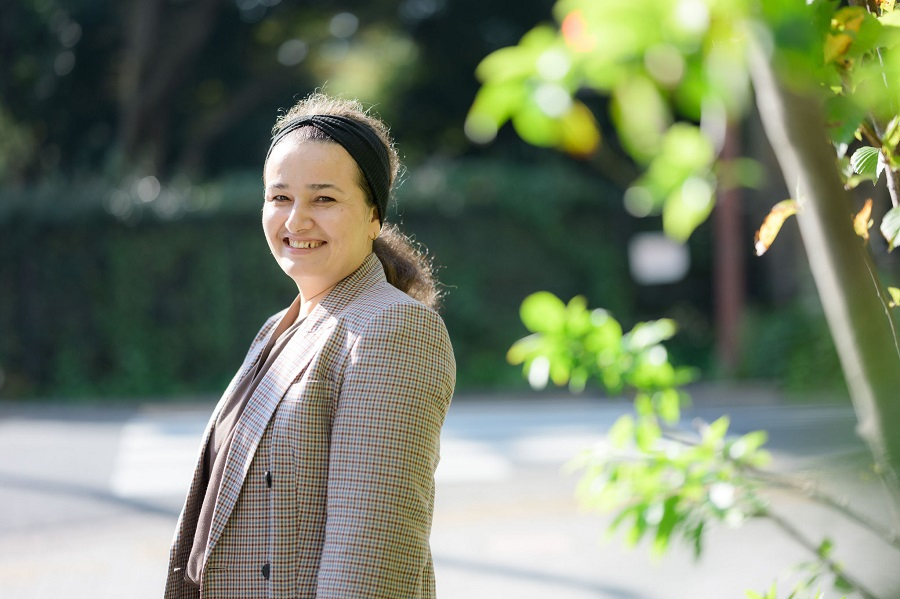
The first reason is that Japan is famous as a developed country in the world. The quality of everything is high and the technology is advanced. The second reason is that I thought the culture was completely different from Afghanistan and unique and interesting. I was informed that scholarships were available from India and Japan, and I chose Japan. From 2016 to 2019, I was in Tokyo for three years as a doctoral student. After that, I returned to my country, but the situation in the government deteriorated, and it became difficult to do research and teach, so I went to Pakistan, and then returned to Japan in 2024.
My specialty is Japanese, and I had a strong desire to study Japanese. I came to Japan because I thought I could learn Japanese while actually using it through living in Japan.
Before entering university, I had planned to study English, but in 2002 my uncle opened a Japanese department at a university in Tajikistan, and I entered the Japanese department at his recommendation. There were 18 classmates at that time. Now the number of students in the Japanese department has increased, and there are 2 majors.
The reason I chose Japan to do research on Hong Kong is that Japan is quite advanced in research related to Southeast Asia and China. The situation in Hong Kong changed with the 2019-2020 protests, and it became difficult to do research in China and Hong Kong. So the center of research shifted to Taiwan and Japan. In Taiwan, there is a certain degree of preconception. In order to look at this issue more objectively, I thought I needed to do some research from a slightly more distant perspective, so I chose Japan.
When You Came To Japan, Could You Speak Japanese?
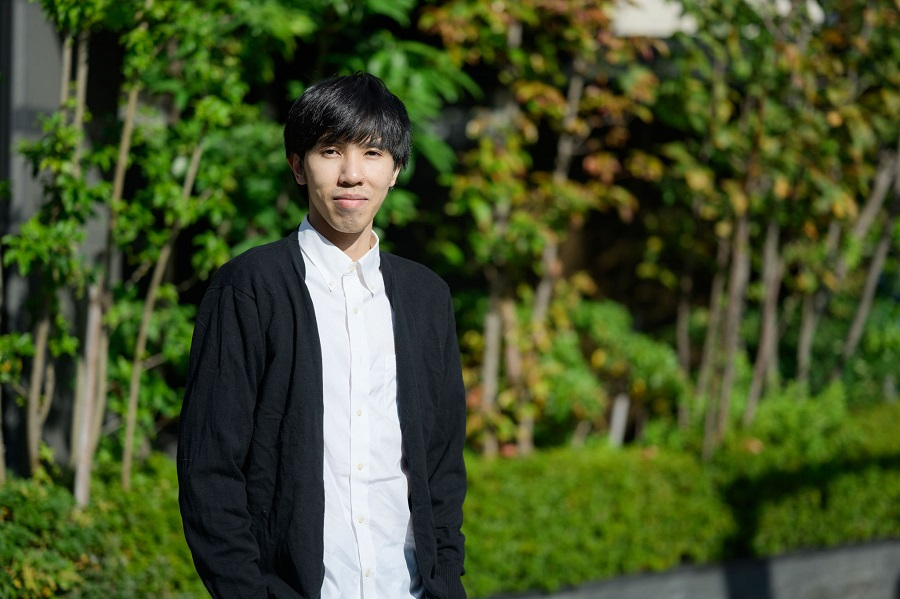
I studied Japanese in Tajikistan, but when I actually tried to use Japanese in Japan, the Japanese people spoke very quickly, and it was completely different. In Japan, I never went to a Japanese language class. I came to Japan and started my research life at the university.
I know, no matter how much you study, it's different when you actually speak it in Japan.
I've been studying Japanese since I was in high school. I had to choose another foreign language at high school, and I chose Japanese. I went on to study Japanese at university, and in 2018 I came to Japan as an exchange student for a year, wanting to study even more. This time I came as a graduate student. When I first came as an exchange student, I tried my best to speak Japanese, but I couldn't use it in actual conversations. The speed of the Japanese spoken in Japan was about 10 times faster than the Japanese I had studied in China. It was very difficult to keep up with that speed.
I studied Japanese during my 3 years in Tokyo as part of a study abroad program for doctoral students, but I forgot most of it when I went back home. Now, I'm trying to learn new Japanese words while studying Japanese at university once a week. I understand simple words.
I also joined an international exchange circle to improve my Japanese. I had more opportunities to speak, and I was finally able to speak normally.
When I returned to university in China, I noticed a difference in language ability between those who had been to Japan and those who had not.
What Language Do You Speak In The Research Lab?
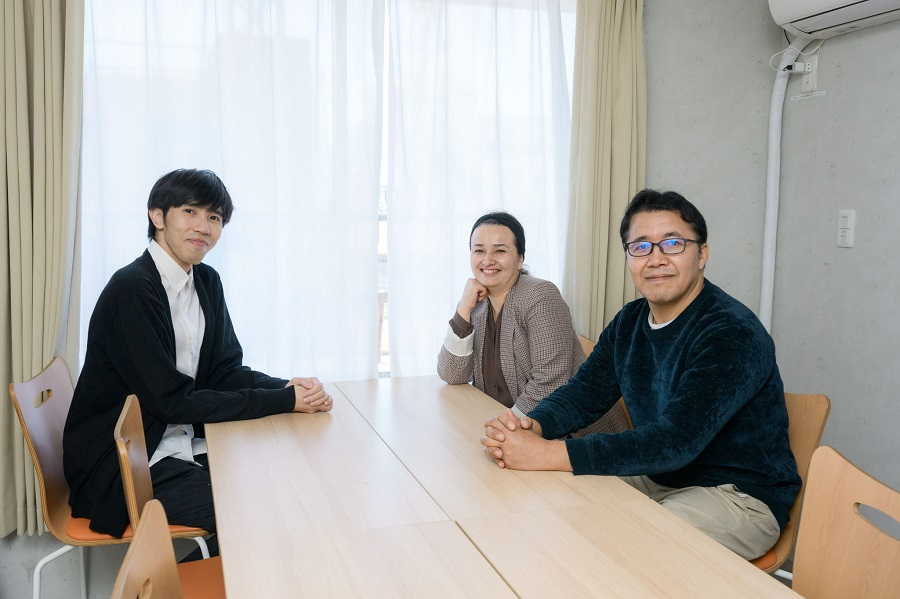
The main language used by researchers when communicating with each other is Japanese, but as I don't understand it yet, I often communicate in English. There are also doctoral students from overseas. I speak with them in English. The professors are Japanese, but they can speak English.
We speak Japanese in the lab. I use Tajik when I ask the professor about the meaning of a word. Sometimes, when the meaning of a word is different and I need an example sentence, I communicate in Tajik. Also, although the writing is different, Persian and Tajik are almost the same language, so sometimes I get asked questions about Tajik by the Persian professor who is Japanese.
As I am in the Graduate School of Foreign Language Studies, there are people researching a variety of languages. In my research group, there are both Japanese and Chinese people. Although the language of communication is Japanese, there are also people researching other regions such as Beijing, Shanghai and Dalian, so it is more convenient to use Chinese when exchanging information. When listening to discussions about Hong Kong, which is my research theme, I sometimes use English because it was originally a British colony.
Q. Do you have any interactions or friendships with other researchers?
We interact with each other through softball, talk in the cafeteria, and sometimes interact within the same research field because of seminars. There are systems in place to connect with various people.
In my lab, there are Japanese researchers who are researching Russian, Persian and Turkish. I'm the only foreigner. We help each other out by checking each other's examples when we don't understand something. I can also speak Russian, so I'm in charge of checking the Russian examples. We help each other out in the lab. In my private life, I'm busy, so I don't really have the chance to go out and play.
I often have meal gatherings with people from my university, but we don't talk much about research. I also attend a monthly academic meeting called the Hong Kong Study Group, which is open to people from other universities, and I listen to other people's research and use it as a reference. After the meeting, there is a kind of drinking party, and we talk about research over drinks. It's really fun.
In this first session, 3 researchers talked about why they chose their research topics and why they are conducting their research in Japan. This is a topic that is not often discussed, so we hope you found it interesting. In the second session, they will talk about "Life in Japan".
── Continued in the Following Issues
